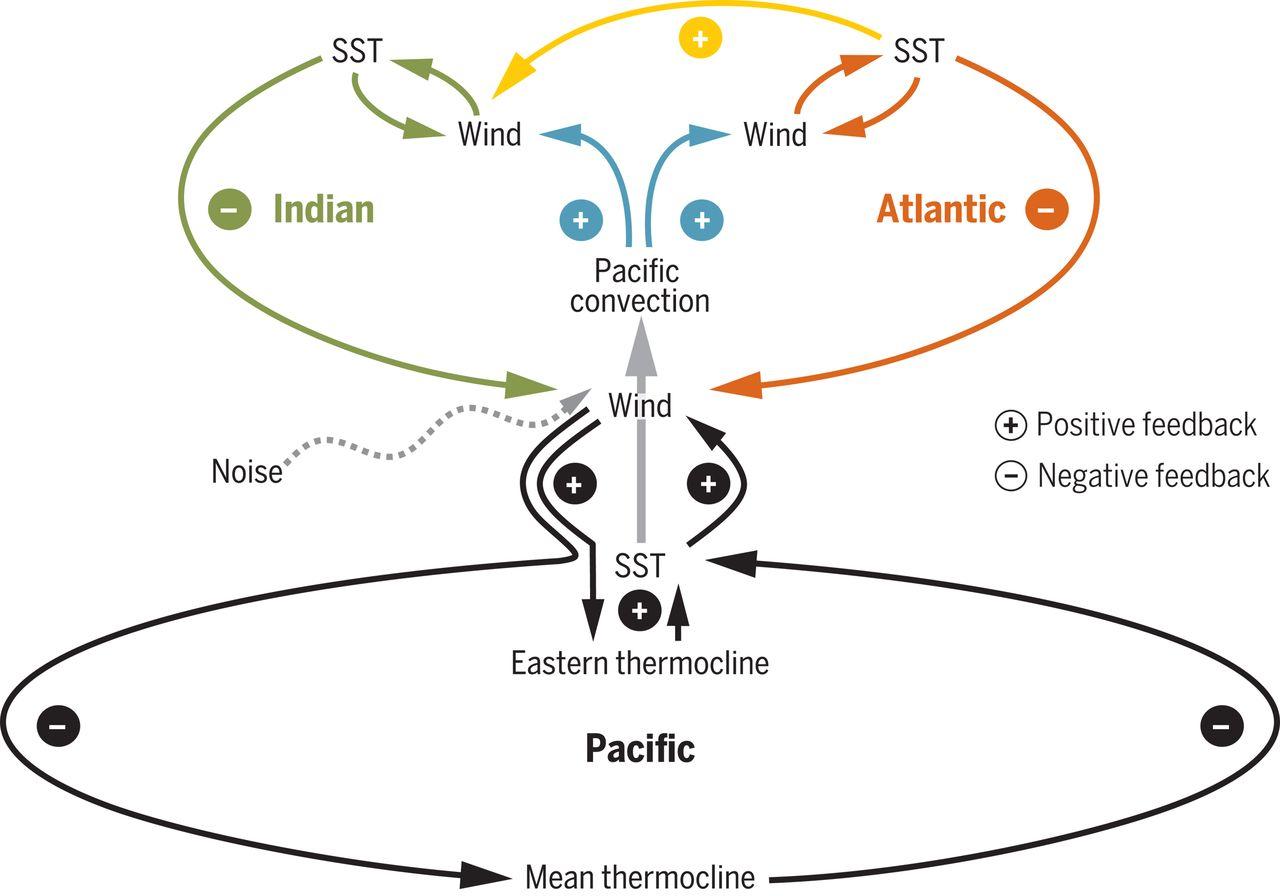Pantropical climate interactions
IF 45.8
1区 综合性期刊
Q1 MULTIDISCIPLINARY SCIENCES
引用次数: 364
Abstract
The El Niño–Southern Oscillation (ENSO), which originates in the Pacific, is the strongest and most well-known mode of tropical climate variability. Its reach is global, and it can force climate variations of the tropical Atlantic and Indian Oceans by perturbing the global atmospheric circulation. Less appreciated is how the tropical Atlantic and Indian Oceans affect the Pacific. Especially noteworthy is the multidecadal Atlantic warming that began in the late 1990s, because recent research suggests that it has influenced Indo-Pacific climate, the character of the ENSO cycle, and the hiatus in global surface warming. Discovery of these pantropical interactions provides a pathway forward for improving predictions of climate variability in the current climate and for refining projections of future climate under different anthropogenic forcing scenarios.

泛热带气候的相互作用
厄尔尼诺-南方涛动(ENSO)起源于太平洋,是热带气候变化中最强烈和最著名的模式。它的影响范围遍及全球,可以通过扰动全球大气环流,迫使热带大西洋和印度洋的气候发生变化。热带大西洋和印度洋如何影响太平洋则较少被人关注。尤其值得注意的是 20 世纪 90 年代末开始的大西洋多年代变暖,因为最近的研究表明它影响了印度洋-太平洋气候、厄尔尼诺/南方涛动周期的特征以及全球地表变暖的间断。这些泛热带相互作用的发现为改进对当前气候中气候变异性的预测和完善不同人为作用力情景下的未来气候预测提供了一条途径。
本文章由计算机程序翻译,如有差异,请以英文原文为准。
求助全文
约1分钟内获得全文
求助全文
来源期刊

Science
综合性期刊-综合性期刊
CiteScore
61.10
自引率
0.90%
发文量
0
审稿时长
2.1 months
期刊介绍:
Science is a leading outlet for scientific news, commentary, and cutting-edge research. Through its print and online incarnations, Science reaches an estimated worldwide readership of more than one million. Science’s authorship is global too, and its articles consistently rank among the world's most cited research.
Science serves as a forum for discussion of important issues related to the advancement of science by publishing material on which a consensus has been reached as well as including the presentation of minority or conflicting points of view. Accordingly, all articles published in Science—including editorials, news and comment, and book reviews—are signed and reflect the individual views of the authors and not official points of view adopted by AAAS or the institutions with which the authors are affiliated.
Science seeks to publish those papers that are most influential in their fields or across fields and that will significantly advance scientific understanding. Selected papers should present novel and broadly important data, syntheses, or concepts. They should merit recognition by the wider scientific community and general public provided by publication in Science, beyond that provided by specialty journals. Science welcomes submissions from all fields of science and from any source. The editors are committed to the prompt evaluation and publication of submitted papers while upholding high standards that support reproducibility of published research. Science is published weekly; selected papers are published online ahead of print.
 求助内容:
求助内容: 应助结果提醒方式:
应助结果提醒方式:


